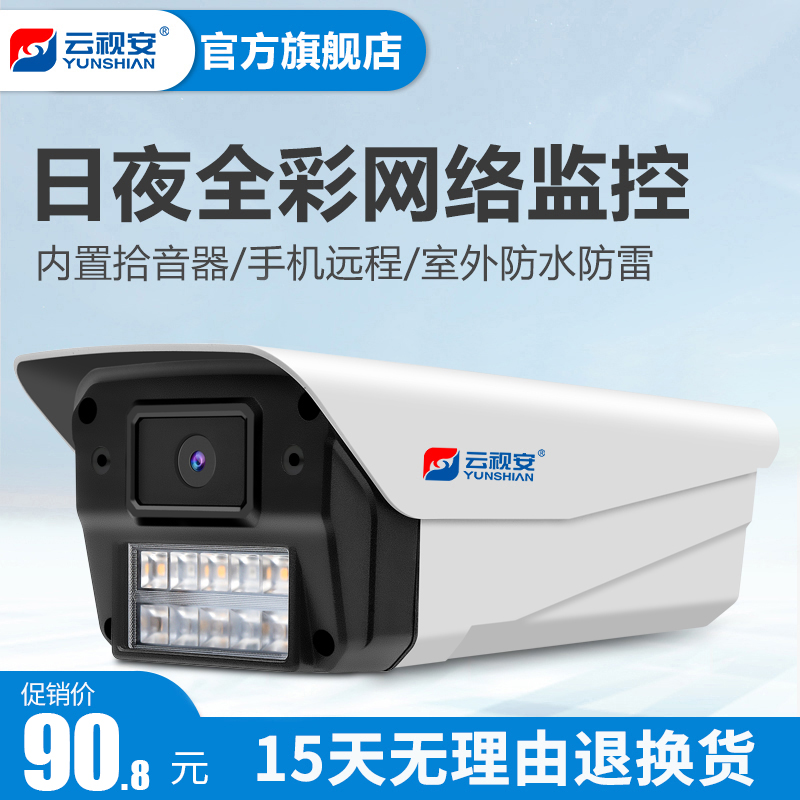全面解析:办公场所安防监控系统的设计与实施
甙邵登峰
2024-11-27 19:56:48
0次
全面解析:办公场所安防监控系统的设计与实施
一、引言
随着社会的快速发展和科技的日新月异,办公场所的安全问题愈发受到关注。为了确保办公环境的安全与稳定,安防监控系统的设计与实施显得尤为重要。本文将全面解析办公场所安防监控系统的设计与实施过程,以期为相关人员提供参考。
二、设计阶段
1. 需求分析
在安防监控系统的设计阶段,首先需要进行需求分析。这包括了解办公场所的具体情况,如办公区域、人员流动、安全需求等。同时,还需考虑监控系统的使用目的,如防止盗窃、保障员工安全等。
2. 系统设计
根据需求分析结果,进行系统设计。这包括选择合适的监控设备、确定监控点位、设计传输网络等。在选择设备时,应考虑设备的性能、稳定性、易用性等因素。同时,要确保监控点位能够覆盖到办公场所的各个角落,实现全方位的监控。
3. 系统架构
系统架构是安防监控系统的核心部分。在设计时,应考虑系统的可扩展性、可维护性以及安全性。同时,要确保系统能够与现有的办公系统进行无缝对接,实现信息的共享与交互。
三、实施阶段
1. 设备选型与采购
根据系统设计,选择合适的设备进行采购。这包括摄像头、录像机、显示器、存储设备等。在选型时,要充分考虑设备的性能、价格、售后服务等因素。
2. 安装与布线
设备采购完成后,进行安装与布线工作。这需要专业的技术人员进行操作,确保设备的安装位置、角度、高度等符合设计要求。同时,要确保布线整齐、美观,避免出现安全隐患。
 3. 系统调试与验收
安装完成后,进行系统调试与验收工作。这包括对设备的性能进行测试、对系统功能进行验证等。在调试过程中,要确保系统能够正常运行、图像清晰、无干扰等。验收时,要确保系统符合设计要求、满足使用需求等。
四、后期维护与升级
1. 后期维护
安防监控系统投入使用后,需要进行定期的维护工作。这包括设备的清洁、维护、检修等。同时,要定期检查系统的运行情况,确保系统能够持续稳定地运行。
2. 系统升级
随着科技的发展和办公环境的变化,安防监控系统可能需要升级以适应新的需求。在升级过程中,要充分考虑新技术的优势和适用性,确保升级后的系统能够更好地满足使用需求。
五、英文翻译
Comprehensive Analysis: Design and Implementation of Security Monitoring System in Office Space
Section I: Introduction
With the rapid development of society and the continuous advancement of technology, the issue of office space security has gained increasing attention. To ensure the safety and stability of the office environment, the design and implementation of a security monitoring system are particularly important. This article comprehensively analyzes the design and implementation process of a security monitoring system in office spaces, aiming to provide a reference for relevant personnel.
3. 系统调试与验收
安装完成后,进行系统调试与验收工作。这包括对设备的性能进行测试、对系统功能进行验证等。在调试过程中,要确保系统能够正常运行、图像清晰、无干扰等。验收时,要确保系统符合设计要求、满足使用需求等。
四、后期维护与升级
1. 后期维护
安防监控系统投入使用后,需要进行定期的维护工作。这包括设备的清洁、维护、检修等。同时,要定期检查系统的运行情况,确保系统能够持续稳定地运行。
2. 系统升级
随着科技的发展和办公环境的变化,安防监控系统可能需要升级以适应新的需求。在升级过程中,要充分考虑新技术的优势和适用性,确保升级后的系统能够更好地满足使用需求。
五、英文翻译
Comprehensive Analysis: Design and Implementation of Security Monitoring System in Office Space
Section I: Introduction
With the rapid development of society and the continuous advancement of technology, the issue of office space security has gained increasing attention. To ensure the safety and stability of the office environment, the design and implementation of a security monitoring system are particularly important. This article comprehensively analyzes the design and implementation process of a security monitoring system in office spaces, aiming to provide a reference for relevant personnel.
 Section II: Design Phase
1. Needs Analysis: During the design stage of the security monitoring system, a needs analysis is necessary. This involves understanding the specific situation of the office space, such as office areas, personnel flow, and security needs. At the same time, it is necessary to consider the purpose of using the monitoring system, such as preventing theft and ensuring employee safety.
2. System Design: Based on the results of the needs analysis, system design is carried out. This includes selecting suitable monitoring equipment, determining monitoring locations, designing transmission networks, etc. When selecting equipment, factors such as performance, stability, and usability should be considered. At the same time, it is necessary to ensure that monitoring locations can cover every corner of the office space to achieve comprehensive monitoring.
3. System Architecture: The system architecture is the core part of the security monitoring system. In the design process, factors such as system scalability, maintainability, and security should be considered. At the same time, it is necessary to ensure that the system can seamlessly integrate with existing office systems to achieve information sharing and interaction.
Section III: Implementation Phase
Section II: Design Phase
1. Needs Analysis: During the design stage of the security monitoring system, a needs analysis is necessary. This involves understanding the specific situation of the office space, such as office areas, personnel flow, and security needs. At the same time, it is necessary to consider the purpose of using the monitoring system, such as preventing theft and ensuring employee safety.
2. System Design: Based on the results of the needs analysis, system design is carried out. This includes selecting suitable monitoring equipment, determining monitoring locations, designing transmission networks, etc. When selecting equipment, factors such as performance, stability, and usability should be considered. At the same time, it is necessary to ensure that monitoring locations can cover every corner of the office space to achieve comprehensive monitoring.
3. System Architecture: The system architecture is the core part of the security monitoring system. In the design process, factors such as system scalability, maintainability, and security should be considered. At the same time, it is necessary to ensure that the system can seamlessly integrate with existing office systems to achieve information sharing and interaction.
Section III: Implementation Phase
 2. Installation and Cabling: After equipment procurement is completed, installation and cabling work is carried out. This requires professional technicians to operate to ensure that equipment installation locations, angles, heights, etc., meet design requirements. At the same time, it is necessary to ensure that cabling is neat and aesthetically pleasing to avoid potential safety hazards.
2. Installation and Cabling: After equipment procurement is completed, installation and cabling work is carried out. This requires professional technicians to operate to ensure that equipment installation locations, angles, heights, etc., meet design requirements. At the same time, it is necessary to ensure that cabling is neat and aesthetically pleasing to avoid potential safety hazards.

【家用网络摄像头】TP-LINK200 300万 400无线摄像头全彩室外家用网络安防监控头语音售价:223.00元 领券价:223元 邮费:0.00

【家用网络摄像头】云视安网络高清全彩夜视摄像头室外家用防水手机远程安防监控器售价:186.60元 领券价:186.6元 邮费:0.00
1. Equipment Selection and Purchasing: Select appropriate equipment for purchase based on system design. This includes cameras, video recorders, displays, storage devices, etc. When selecting equipment, factors such as performance, price, and after-sales service should be fully considered.

【家用网络摄像头】水星有线POE摄像头室内家用商用店铺安防监控器高清全彩红外半球售价:155.00元 领券价:155元 邮费:0.00
相关内容
热门资讯
全面理解办公场所安防监控系统的...
本文全面解析了办公场所安防监控系统的部署与操作,包括系统需求分析、硬件设备选择与配置、系统安装与布线...
现代办公设备中的安防监控技术详...
现代办公设备中,安防监控技术如视频监控、入侵检测和人脸识别等,通过实时监测和保护,提高办公环境安全性...
办公设备中的安防利器:监控系统...
办公设备中,监控系统是提高安全与效率的安防利器。它能进行视频、音频监控,及时报警并分析数据,广泛应用...
打造安全办公环境,安防监控系统...
在信息化时代,安全办公环境愈发重要,高效安防监控系统必不可少。本文阐述其重要性及物理、数字和员工行为...
高效办公:智能安防监控设备的应...
本文讨论了智能安防监控设备在高效办公中的应用和选择,涉及视频监控、入侵检测和异常行为识别等技术。选择...
办公空间中不可或缺的监控设备
办公空间监控设备是不可或缺的,包括摄像头、录像机、监控屏幕及软件系统,能确保办公区域安全,提高工作效...
办公楼安防监控系统:保护企业资...
本文介绍了办公楼安防监控系统,旨在保护企业资产和员工安全。该系统通过视频监控、门禁控制等手段,实现全...
智慧办公,安全无虞——探秘现代...
现代安防监控设备具有智能化、高清化、智能分析技术及强大的存储回放功能,保障智慧办公安全无虞,保护企业...
办公区域安全防护:从办公设备监...
办公区域安全防护关键在于设备监控。通过监控办公设备,可提高使用效率、防止滥用和保障企业安全。采取安装...
办公设备中的安防监控:如何选择...
摘要:选择办公设备中的安防监控解决方案需考虑预算、安全性、兼容性、功能性和维护支持等因素。可采取视频...
